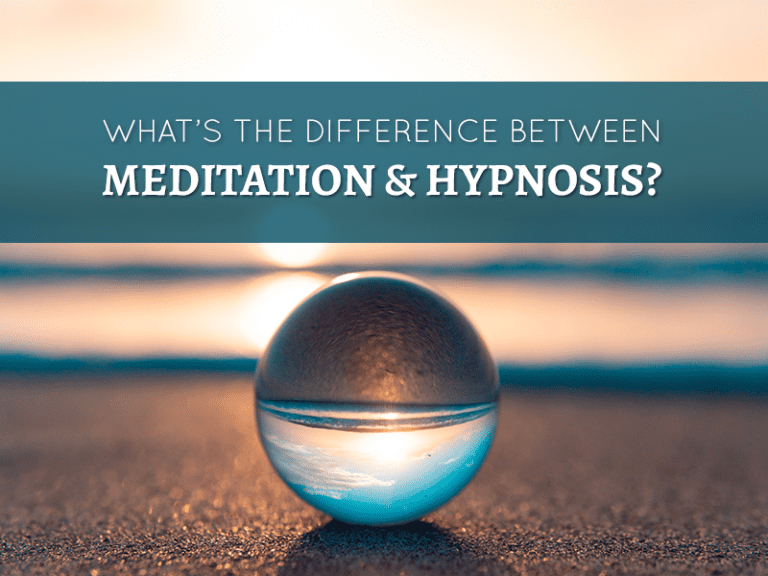What’s the Difference Between Meditation and Hypnosis?
When most people think about meditation, they probably think about sitting in the lotus position and emptying their minds of all thoughts. This is one form of meditation, but there are many others.
In this blog post, we will discuss the difference between meditation and hypnosis. We will also talk about the benefits of each practice, and help you decide which one is right for you!
Meditation
Meditation has long been associated with Buddhist monks who spend hours at a time meditating each day. However, anyone can do meditation – you don’t need to be religious or spiritual to get the benefits of meditation and hypnosis.
Meditation is a practice where an individual uses a specific technique – such as focusing on the breath – to train the mind to become more aware, focused, and calm.
The practice itself consists of focusing your awareness on one particular thing, such as your breath, a part of your body, or even a feeling associated with an idea or intention.
The goal of meditation is to learn how to quiet the mind and focus on the present moment. This can help reduce stress, improve attention span and focus, and manage pain or chronic conditions. People who meditate regularly often report feeling more relaxed, happier, and more centered in their lives.
Hypnosis
Hypnosis, on the other hand, is a state in which someone else guides your awareness to a state of heightened relaxation and suggestibility.
The practice itself consists of entering into an altered state of consciousness where your subconscious mind becomes open and receptive to suggestions.
In hypnosis, the person usually enters into a trance-like state in which they are more suggestible and can be directed to change their thoughts or behavior. It can be used to help people change habits or to explore memories or feelings they have buried. Some people use it for medical procedures such as pain control.
There is a lot of overlap between meditation and hypnosis.
Let’s look at the science behind both practices. There are four primary types of brain waves: beta, alpha, theta, and delta.
Beta waves are associated with normal waking consciousness and occur when a person is alert and engaged in cognitive activity. Alpha waves are associated with relaxation and occur when a person is calm and their mind is clear. Theta waves occur during light sleep or deep relaxation, while delta waves are generally only present during deep sleep.
Both meditation and hypnosis are powerful tools that can help you achieve your goals. They both lead you into altered states of consciousness, which means that you can use them to bring about positive changes in your life.
If you’re interested in using meditation or hypnosis to change your life for the better, we can guide and support you through every step of the process. What goal would you like to achieve with meditation or hypnosis?

